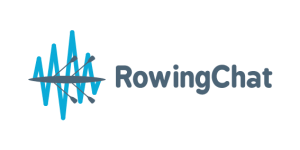How to plan your rowing season
– when to peak
– how racing contributes to peak events
– winter / summer racing
– what to work on for fitness
https://fastermastersrowing.com/podcast
Timestamps
01:00 This past week – Rowing Canada Aviron safe sport webinar.
British Rowing strategy
https://www.britishrowing.org/2021/11/have-your-say-british-rowing-strategy/
Karapiro Rowing are seeking a Board chairman.
03:00 Best wishes to the Canadians affected by the recent storm and flooding
07:00 What is a peak in rowing?
You are gearing up for a big performance. When you peak you want to be as rested and prepared as possible.
The taper period is longer, if your training volume is high.
7-14 days before the big event to allow recovery and attain a fully rested state.
11:00 you can do 2 to 3 peaks per year.
In between you review the date of your last peak and when the next major event is.
Every race is NOT a peak.
Winter peak can be races or big erg events
Summer peak can be national championships
13:00 After a peak event you have to regenerate – physical and mental
Choose your calendar and find your events.
Look at intermediate events between the peaks too
Consider cross-training.
Catch up on home things and deferred activities when you are regenerating.
17:00 What to work on for fitness
Take the tempo down and do long endurance work less than 22 stroke rate.
Do your technique work to correct flaws.
Cross training can also help.
Get back into a routine to build strength – circuits and body weight work. Variety.
20:00 The Faster Masters Fitness assessment is 4 tests. Peak power, top end race tempo, anaerobic threshold, base fitness aerobic.
The proportional fitness of peak power impacts your results.
Base fitness tells us if your bottom of the fitness pyramid is wide or narrow. Helps manage intensities fro training and your recovery ability.
It takes about 3 years to build base fitness.
Newcomers should do cross training to get fitness on land. A light sweat – not out of breath. Up your intensity if you can (not too hard).
Keep it ‘conversational’ while you train.
Low intensity strengthens your cardiac muscles.
Use fat as your primary fuel.
29:00 doing multiple races in a day – like A/B races to try different lineups
Helps you define your race plan and try different race strategies
n
No related episodes.
